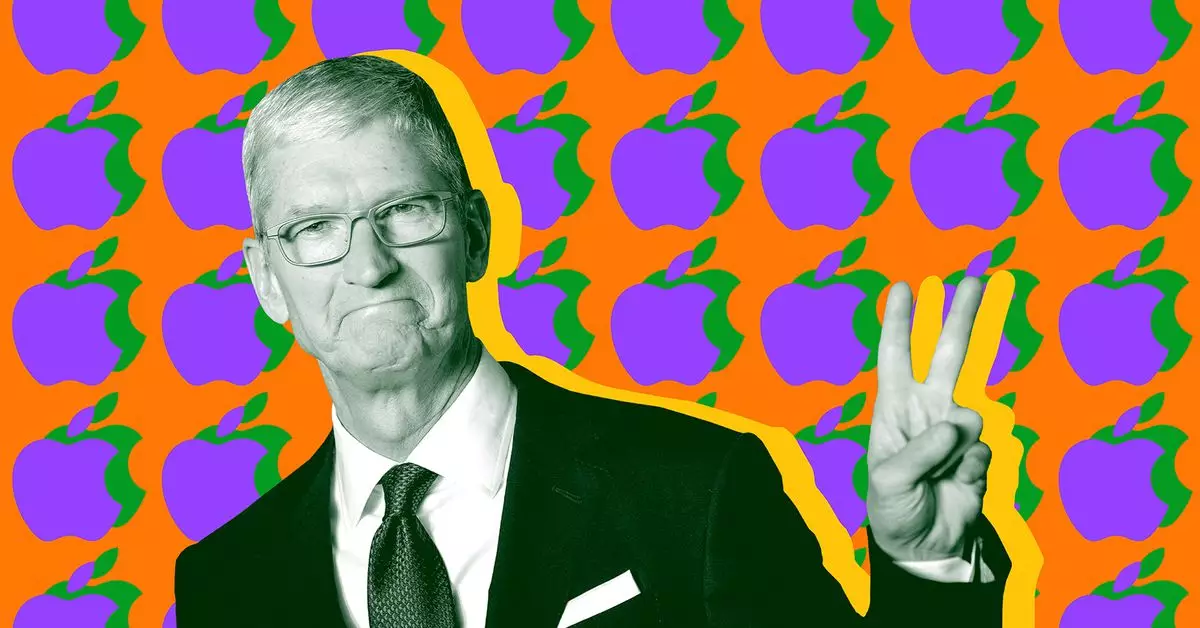In an era where technology forms the backbone of modern society, the crossover between corporate leadership and political engagement has become increasingly pronounced. The recent revelation of Apple CEO Tim Cook’s $1 million donation to President-elect Donald Trump’s inauguration committee underscores this dynamic. This development reflects a broader trend among tech industry leaders, who are strategically aligning themselves with incoming administrations.
Cook’s monetary contribution is not an isolated incident; it is part of a growing pattern where big-name CEOs are donating substantial sums to Trump’s inauguration efforts. Other notable figures such as Sam Altman of OpenAI and Amazon’s Jeff Bezos have made comparable donations. This influx of support may signal an implicit acknowledgment among tech executives that collaboration with government can pave the way for favorable regulatory landscapes and an overall cooperative stance toward their industries.
What is particularly compelling is Cook’s established relationship with Trump. Their interactions, ranging from congratulatory remarks after the election to private meetings at multiple locations, illustrate a unique camaraderie that Cook has nurtured since Trump’s election victory. This relationship presents a case study in how personal ties can influence corporate strategies and contribute to broader political narratives.
The motivations driving these donations are complex. Unofficial sources have reported that Cook, a native of Alabama, views the inauguration as an integral feature of American tradition. This portrayal suggests a desire for unity and collaboration, which aligns with the rhetoric of bipartisan cooperation that is often espoused during election cycles. However, beneath this sentiment lies an essential question: Are these donations rooted in genuine belief in democratic values, or are they calculated moves designed to secure favor with an administration that holds substantial power over the tech sector?
Furthermore, the lack of contribution from Apple as a corporate entity raises eyebrows. It may denote a careful separation between corporate interests and personal affiliations, but it also raises the specter of potential backlash among consumers more sensitive than ever to corporate ethics and political entanglements.
As the political landscape evolves, the actions of influential figures like Tim Cook will likely shape the dialogue around corporate responsibility and ethics in politics. If CEOs continue to align themselves with political leaders in this manner, it could redefine expectations in corporate governance and civic responsibility. The implications of these financial contributions extend far beyond monetary value; they encapsulate a broader narrative on the interplay between technology, politics, and society.
As we move forward, it is imperative for consumers to remain vigilant and critical of such actions, questioning not only the motivations behind them but also the potential ramifications for the tech industry and the nation as a whole. Understanding these dynamics is crucial in navigating a landscape where the lines between corporate interests and political agendas increasingly blur.

